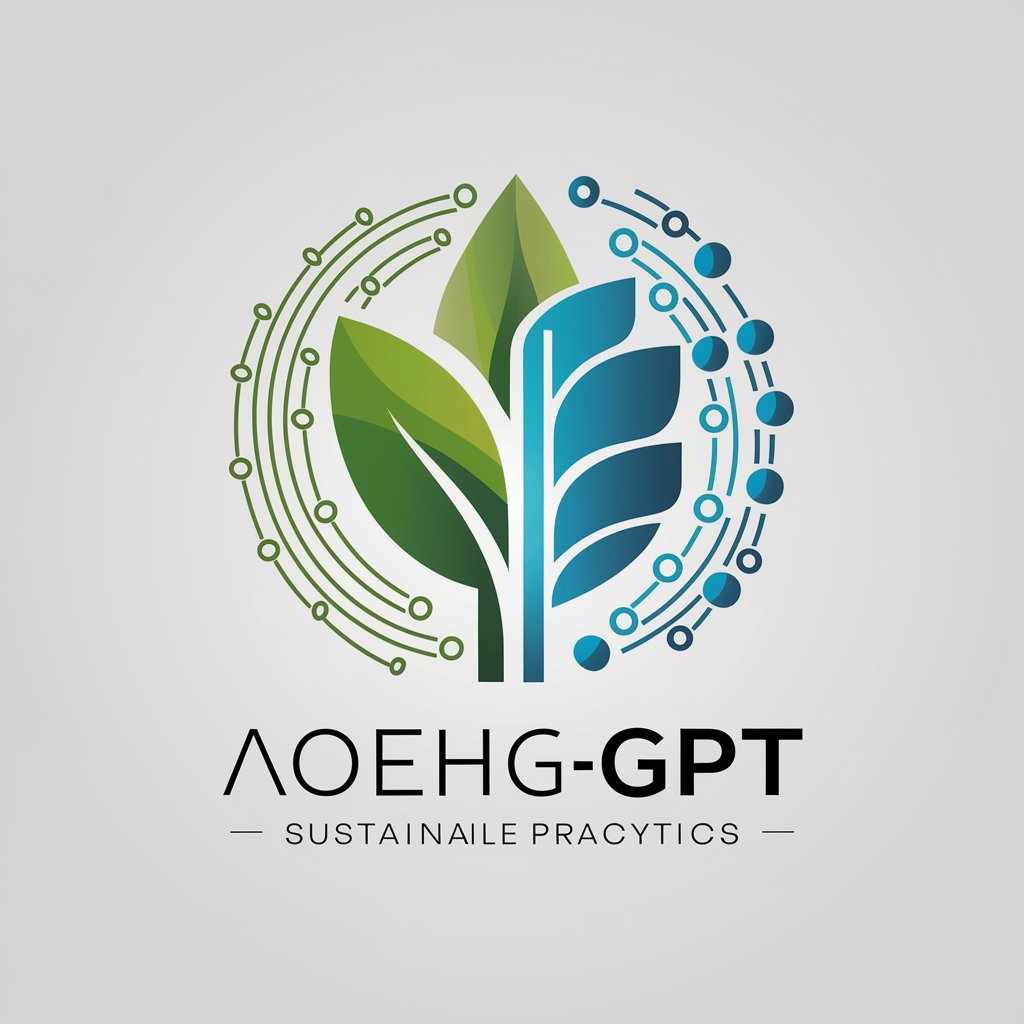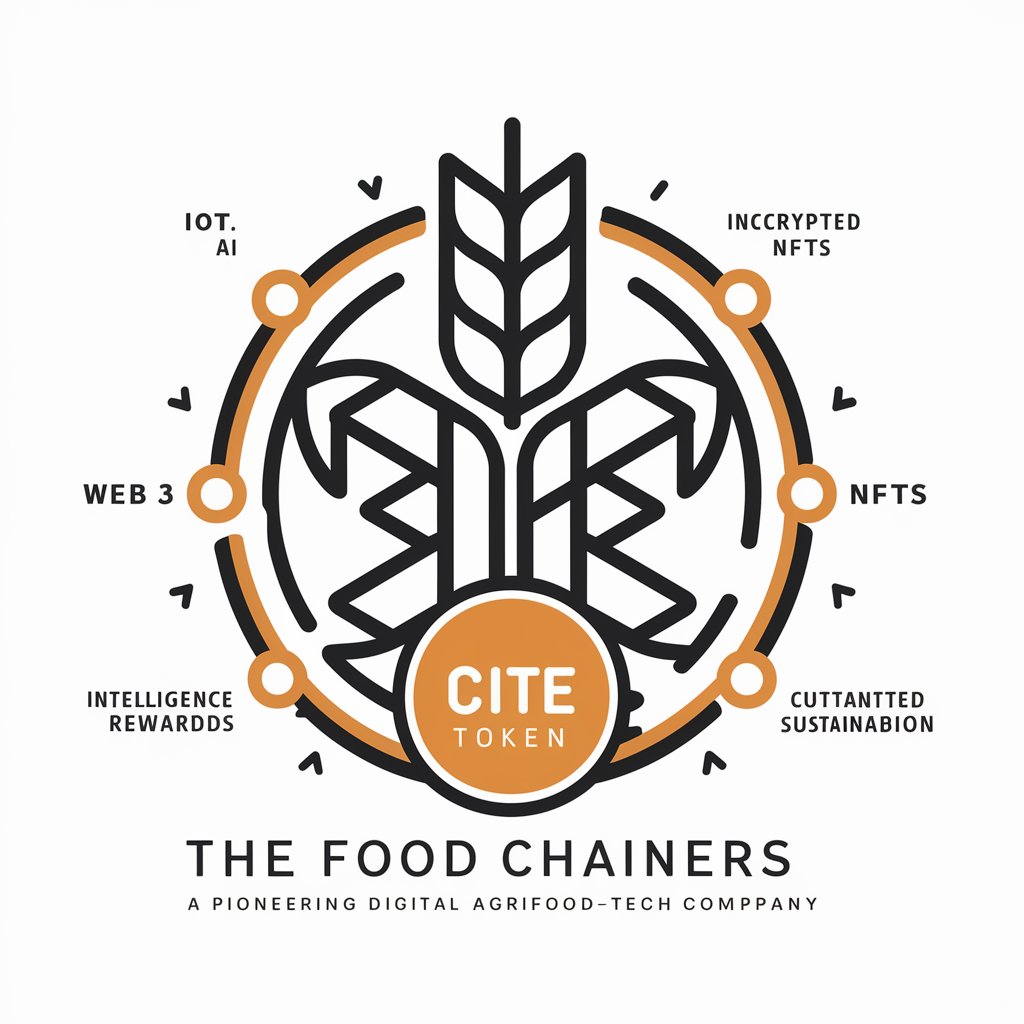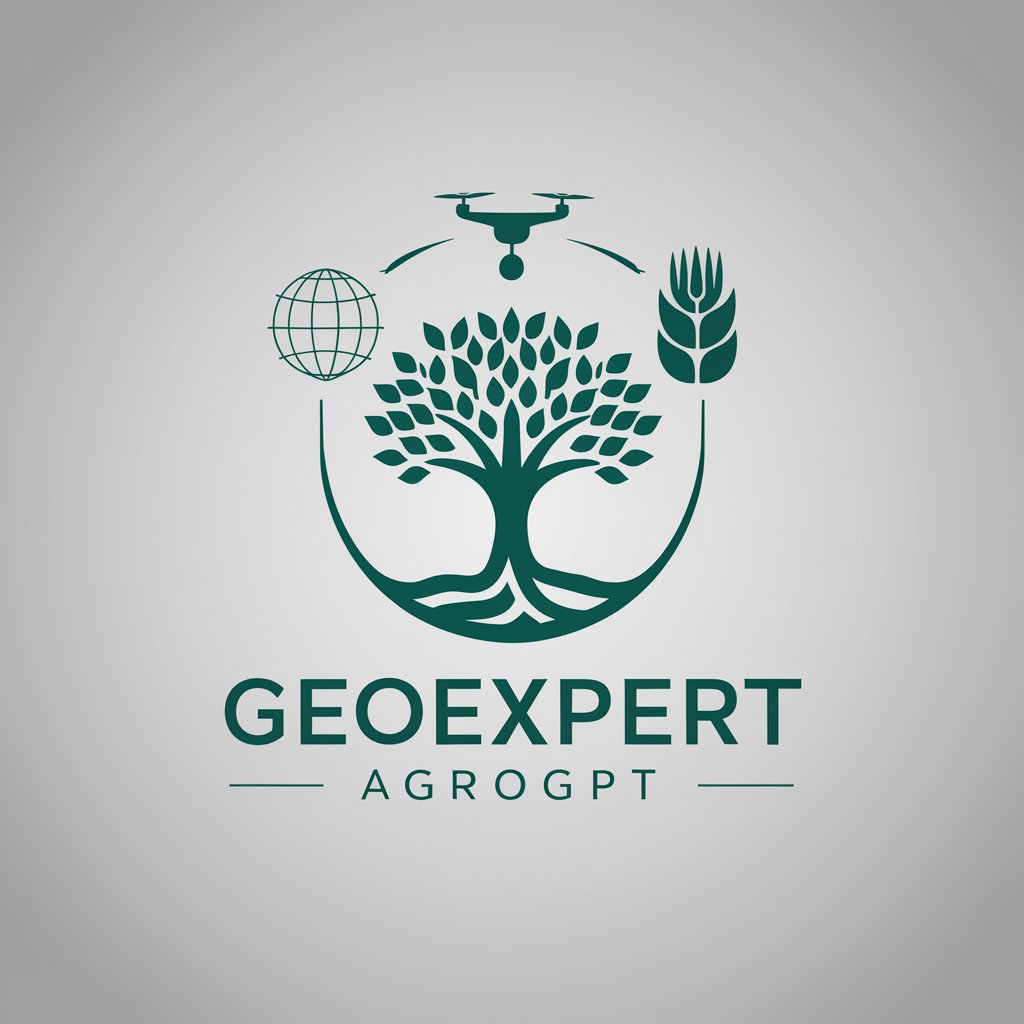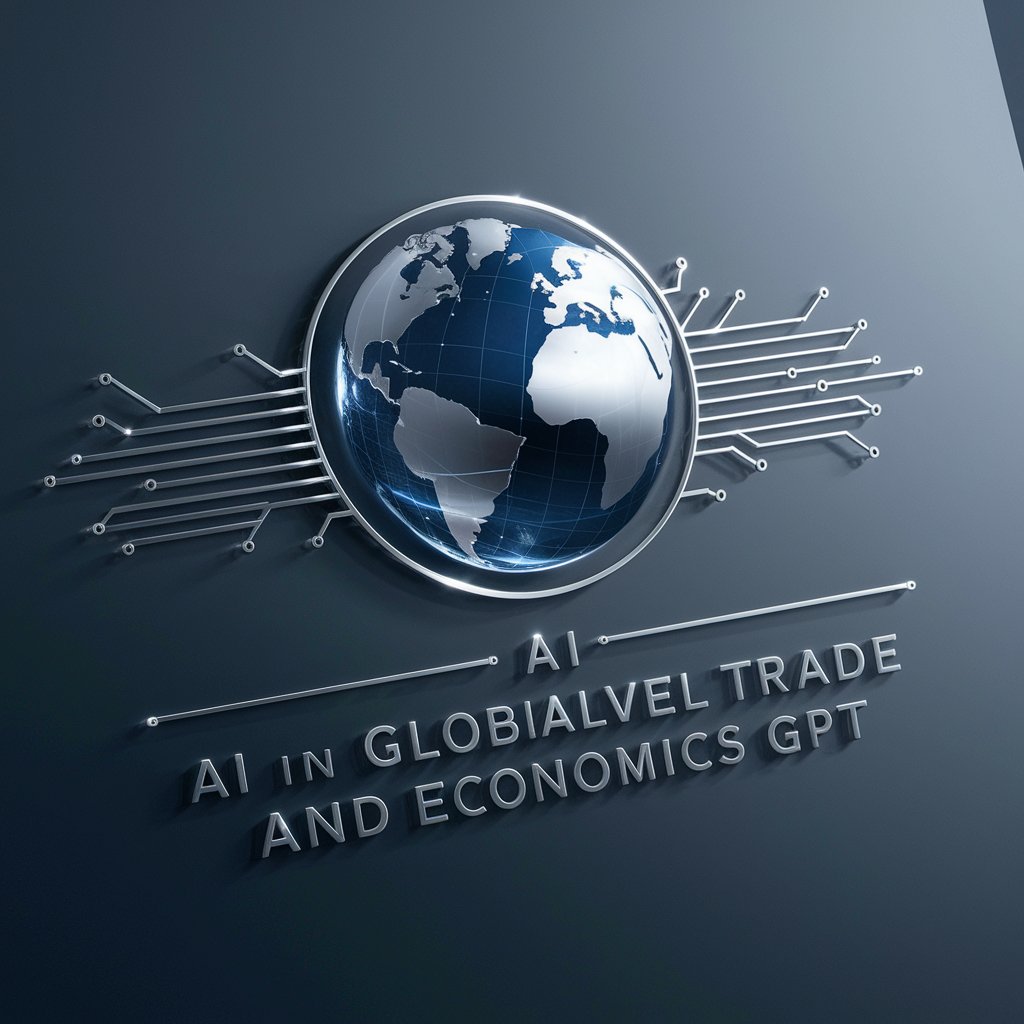
AI in Agriculture and Food Security GPT - AI-powered Agricultural Insight

Welcome! Let's explore AI's impact on agriculture and food security.
Empowering agriculture with AI innovation.
Explain how AI can optimize water usage in agriculture.
Describe the latest AI technologies improving crop yield.
How can AI help small-scale farmers increase productivity?
What are the sustainable practices in agriculture enhanced by AI?
Get Embed Code
Overview of AI in Agriculture and Food Security GPT
AI in Agriculture and Food Security GPT is designed as a specialized tool focused on leveraging artificial intelligence to enhance agricultural practices, increase food production efficiency, and tackle the challenges of global food security. At its core, it aims to provide insights, data analysis, and actionable recommendations to optimize crop yields, manage resources more effectively, and predict environmental impacts on agricultural outputs. Through the integration of AI technologies like machine learning, computer vision, and predictive analytics, this GPT facilitates smarter decision-making in farming operations, sustainable resource management, and strategic planning for future food demands. Examples include deploying drones for precision agriculture to monitor crop health, using machine learning algorithms to predict pest invasions, and employing AI-driven platforms to optimize supply chain logistics in the agriculture sector. Powered by ChatGPT-4o。

Core Functions and Real-World Applications
Precision Agriculture
Example
Deploying drones and satellites equipped with AI to analyze crop health and soil conditions.
Scenario
Farmers utilize AI-driven analysis to precisely target areas that need watering, fertilization, or pest control, reducing resource waste and enhancing crop yield.
Predictive Analytics for Crop Diseases
Example
Machine learning models predicting the outbreak of crop diseases based on historical data and current environmental conditions.
Scenario
Agricultural experts receive early warnings about potential disease outbreaks, enabling preemptive actions to safeguard crops and minimize losses.
Supply Chain Optimization
Example
AI algorithms optimizing logistics and supply chain efficiencies for agricultural products.
Scenario
Producers and retailers leverage AI to ensure timely delivery of fresh produce, reducing spoilage and improving food distribution networks.
Resource Management
Example
AI systems managing water usage and fertilizer application to improve sustainability.
Scenario
Farmers apply AI recommendations to use resources more sustainably, lowering costs and minimizing environmental impact.
Target User Groups for AI in Agriculture and Food Security GPT
Farmers and Agricultural Producers
This group benefits from precise, AI-driven insights for optimizing their farming practices, improving yields, and reducing environmental impacts.
Agritech Companies
Tech companies in the agricultural sector can leverage this GPT to develop new AI-based solutions, enhance existing products, and offer consulting services to their clients.
Research and Educational Institutions
Academics and researchers can utilize the GPT for data analysis, hypothesis testing, and educational purposes, fostering innovation in the field of AI and agriculture.
Policy Makers and Government Agencies
This group can use the GPT to inform policy decisions, promote food security initiatives, and implement technology-driven agricultural programs at various scales.

How to Use AI in Agriculture and Food Security GPT
Start your journey
Begin by visiting yeschat.ai to access a free trial of AI in Agriculture and Food Security GPT without the need for login or ChatGPT Plus subscription.
Identify your needs
Consider your specific questions or areas of interest within agriculture and food security where AI applications could be beneficial.
Interact with GPT
Input your queries directly into the platform. Be specific to ensure the responses are tailored to your needs.
Utilize feedback
Make use of the user feedback mechanism to refine the answers you receive, enhancing the relevance and accuracy of information.
Explore regularly
Regularly interact with the tool to stay updated on the latest developments and trends in AI applications in agriculture and food security.
Try other advanced and practical GPTs
Master Valuator
Empowering financial clarity with AI

T-Shirt Designer
Design Your Story, Wear Your Imagination

Film Editor Master
Revolutionize Your Edits with AI

AI University
Empower your education with AI

Code Mentor
Learn Coding with AI Guidance

Nyhedsbrevet
Craft Winning Newsletters with AI

Scooter Tips
Navigate Your Ride Smartly

Scooter Style
Generate dynamic techno lyrics instantly

Mario the Mechanic
Your AI-powered NIU specialist.

Trivia Trailblazer | Single, Multiplayer
Empower your curiosity with AI-driven trivia

Redhead
Talk Smart, Think Smarter

Customer Dialog Manager
Elevate Your Customer Conversations with AI

Detailed Q&A on AI in Agriculture and Food Security GPT
What AI technologies are most impactful in modern agriculture?
AI technologies such as machine learning models for crop disease prediction, drone imagery for precision farming, and robotics for harvesting are significantly improving efficiency and productivity in agriculture.
How does AI contribute to solving food security challenges?
AI helps address food security by optimizing supply chains, enhancing crop yield predictions, and developing climate-resilient farming practices, ensuring a more stable and abundant food supply.
Can AI in Agriculture GPT help with pest management?
Yes, the tool can provide insights on integrating AI-based pest detection systems into farming practices, using image recognition and data analysis to identify and manage pest infestations effectively.
Is this tool suitable for educational purposes in agri-tech?
Absolutely, it serves as an excellent resource for students and educators alike, offering comprehensive information on the application of AI in agriculture, supporting both learning and research.
How can small-scale farmers benefit from AI in Agriculture GPT?
Small-scale farmers can leverage AI-driven insights on crop selection, disease prevention, and resource management, making their operations more efficient and sustainable with limited resources.





